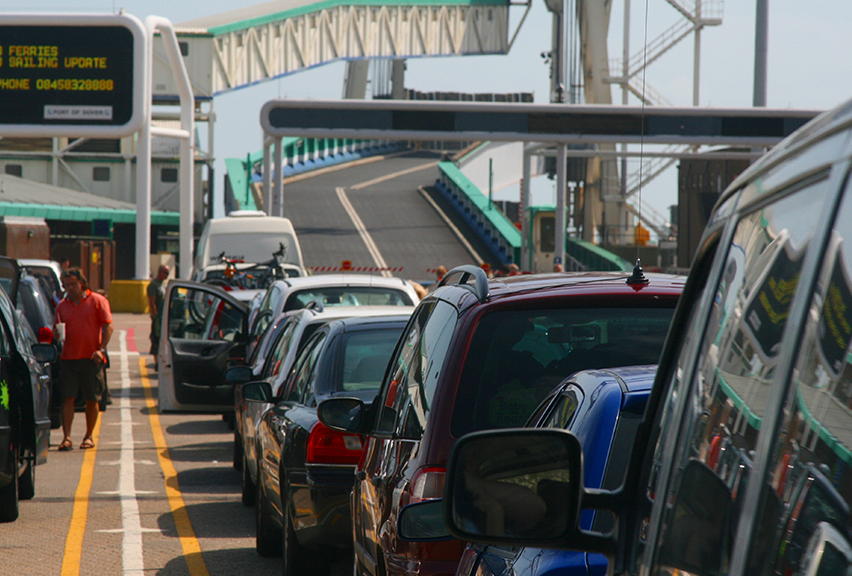On Tuesday 29th of October, I along with other members of ABTA) was invited to visit the Port of Dover for a tour of the new facilities that have been put in place for the EES (a new procedure for passenger checks including capturing biometric data when entering and exiting the Schengen area).
The EES was due to launch on the 10th November 2024 but has recently been delayed. No new date has been announced yet, due to EU member states not being ready to launch and significant fears of disruption due to lack of testing.
When it comes to the EES itself, I’m afraid I returned from my visit to Dover with as many questions as before (so no inside scoop to share with you on that front). However, I was extremely impressed with the port’s ability to adapt and cope with the changes that the (eventual) introduction of EES requires.
The Port of Dover has built two brand new facilities in the Western docks that will be able to process four coaches at once. Each building is separated into two, and they’ll only process a single coach at a time – so there’s no danger of any groups mixing.
The procedure won’t be too unfamiliar – it’ll be very similar to using a E-gate at the airport and then going to see a French border official who physically checks the passport.
Now for the clever bit. Once the group is through and back on the bus, the bus will be sealed – officially. The floor of that coach will (temporarily) become French soil as it makes its way from the Western docks to the Eastern dock to catch their ferry. There are no further checks for the coaches to go through. Once the system’s bedded in, I genuinely don’t believe that it’ll have a huge impact on the processing time.
Interestingly, the French have responsibility for providing all the IT, including the kiosks and connection to their systems. So, even though these new facilities are being planned and built by the team at the Port of Dover, very soon it will be operated solely by the French.
So, on paper, there really isn’t a huge amount to be concerned about.
New technology will always have teething problems, but the team at Dover have literally invested millions to facilitate the best experience possible.

Where I still have concerns is how general tourist and freight traffic is going to impact coaches. Processing individual cars is a lot tricker than coaches and if traffic backs up around the surrounding area that will inhibit the ability of coaches to get to the facilities. News stories of long queues aren’t scaremongering and have come from the Port of Dover’s own projections of ‘worst case scenario’.
Also, although the drive from the Western Dock to the Eastern Dock isn’t far, that short journey could take a significant amount of time if there’s gridlock, with the added pressure of the coach remaining sealed (because if the seal is broken for any reason at all the coach needs to be re-processed).
So, there are two main takeaways from my experience today. Firstly, there’s still a huge lack of information which will allow us to properly plan for the implementation of the EES. There are rumours of up to a two-year delay and even the possibility that school groups will be exempt. Until we have further clarity on when it’ll be launched, there’s little we can do to plan.
Secondly, I was genuinely extremely impressed by the meticulous planning and thought by the team at Dover. Their operation is massively complicated and it was clear that at every step of the way that they’ve considered efficiency and the customer experience.
There was genuine belief from the team at the Port of Dover that not only would the new operation be able to cope with their current demand but that in the future it could see capacity for coaches increase to the levels we saw pre-Brexit.
A huge thank you to the team at ABTA for organising this visit and to the team at the Port of Dover for the showaround.
We'll post further updates on the introduction of EES to this blog and also to our socials as soon as we get them. And if you're travelling with us, we'll of course let you know if the introduction of EES is likely to have any kind of impact on your trip (and we'll do our best to reduce any impact it might have).